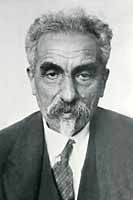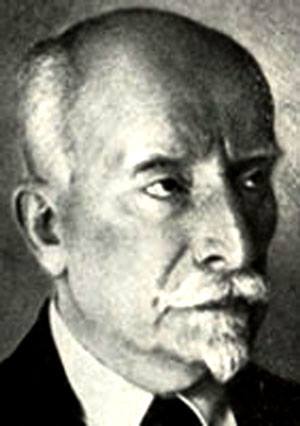Discover Your Roots
SIGN UPDiscover Your Roots
SIGN UPNikolai is a male name of Russian origin, meaning "Victory Of The People." It is an East Slavic variant of the name Nicholas. Notable figures with this name include Nicholas I and Nicholas II, Emperors of Russia, as well as individuals in various fields such as sports, arts, and politics. The name is associated with strength, triumph, and leadership. Nikolai also has cultural significance, with references to locations in the United States and a brand of vodka. It is a name that carries a sense of historical importance and resilience, making it a timeless and impactful choice for a male child.

Nanhoï Nikolai Kinski, born on July 30, 1976, is a renowned French-American actor known for his work in film, television, and stage productions. Born in Paris and raised in California, he currently resides in Berlin and is fluent in English, German, and French. As the only son of the legendary German actor Klaus Kinski and his third wife, Minhoi Geneviève Loanic, Kinski comes from a family deeply rooted in the entertainment industry. Notably, he is the half-brother of actresses Pola Kinski and Nastassja Kinski, as well as the uncle of model Kenya Kinski-Jones.Kinski's acting journey began at a young age when he appeared alongside his father in the film "Kinski Paganini" at just 13 years old. Following his passion, he pursued a theatre major at the UCLA School of Theatre, honing his skills and graduating from the esteemed institution. His career has spanned American and German films, with notable roles in "Æon Flux" (2005) alongside Charlize Theron and various German language productions. In 2006, Kinski was honored with the Romy Award for Best Newcomer, further solidifying his status in the industry.With a diverse and impressive filmography, Nikolai Kinski continues to captivate audiences with his compelling performances, establishing himself as a multifaceted talent on the international stage.

Nikolai Aleksandrovich Lukashenko, born on August 31, 2004, is the third son of Alexander Lukashenko, the president of Belarus. His mother is rumored to be Irina Abelskaya, a former personal physician of Alexander Lukashenko. Nikolai has two half-brothers on his father's side and one presumed half-brother on his mother's side. He attended Ostroshitsko-Gorodok Secondary School and later Belarusian State University Lyceum. He was reported to have withdrawn from the Lyceum in August 2020 and was said to have graduated from a private gymnasium in Minsk. There were mentions of him studying at Peking University in 2023. In 2024, Nikolai Lukashenko was added to Canada's sanctions list. He made several public appearances alongside his father, attracting significant media attention. His father has mentioned that Nikolai would become the President of Belarus, causing speculation in the press. Despite his young age, Nikolai has already taken part in a session of the United Nations General Assembly and has shown proficiency in Russian, English, and is learning Chinese and Spanish. He has also been learning to play the piano since the age of 9.

Nikolai Nikolaevich Ge, born on 27 February [O.S. 15 February] 1831, was a prominent Russian painter known for his significant influence on the development of Russian symbolism. Hailing from a noble family in Voronezh, Ge's early life was marked by the tragic loss of his mother to cholera when he was just three months old. Despite the adversities, he pursued an education in physics and mathematics before eventually turning to art. Ge's artistic journey led him to the Imperial Academy of Arts in Saint Petersburg, where he honed his skills under the guidance of renowned painter Pyotr Basin. His exceptional talent was acknowledged with a gold medal for his masterpiece, The Witch of Endor Invoking the Spirit of the Prophet Samuel.Ge's artistic odyssey took him across Europe, from Germany to Italy, where he met and drew inspiration from fellow artist Alexander Andreyevich Ivanov. His bold approach to art was exemplified in his innovative use of photography as a reference for his iconic painting, The Last Supper, a groundbreaking technique that garnered both acclaim and controversy.In his later years, Ge delved into religious subjects and portraits, aligning with the philosophical ideals of Leo Tolstoy. His profound dedication to his craft was evident in his unwavering commitment to creating art that transcended commercial value, a sentiment that resonated with liberal critics and drew criticism from conservative circles.Nikolai Nikolaevich Ge's legacy end

Nikolai Yakovlevich Marr (1865–1934) was a Georgian-born historian and linguist known for his scholarly work on the Caucasus. He gained recognition for his "Japhetic theory," which proposed a common origin for Caucasian, Semitic-Hamitic, and Basque languages. Marr's controversial theory suggested that all languages descended from a single proto-language and involved the study of "primordial exclamations" present in different languages. His work influenced the introduction of the Latin alphabet for smaller ethnicities in the Soviet Union during the 1920s and 1930s. However, in 1950, Joseph Stalin denounced Marr's theories as anti-Marxist, leading to a decline in their official favor. Marr's diverse academic pursuits included studies in Caucasian languages, Arabic, Persian, Turkish, Hebrew, Sanskrit, and Syriac. He also conducted excavations at the ancient Armenian capital of Ani. Marr's legacy continues to be a subject of interest and debate in the field of linguistics.

Nikolai Vladimirovich Dahl, also known as Nicolai Dahl, was a renowned Russian physician born on July 17, 1860. He achieved recognition for his successful treatment of the composer Sergei Rachmaninoff, who had experienced a creative block following the disastrous premiere of his First Symphony. Apart from Rachmaninoff, Dahl also attended to other notable patients such as Chaliapin, Scriabin, and Stanislavsky. Dahl graduated from Moscow University in 1887 and furthered his studies in France under the guidance of Jean-Martin Charcot, specializing in neurology, psychiatry, and psychology. As an amateur viola player with a keen interest in music, Dahl's most significant accomplishment was the treatment of Sergei Rachmaninoff's creative block through a therapy program lasting more than three months, which incorporated hypnotherapy and supportive therapy. After emigrating from the Soviet Union in 1925, Dahl settled in Beirut, Lebanon and played the viola in the orchestra of the American University of Beirut. His legacy was immortalized in the 2015 Off-Broadway musical Preludes by Dave Malloy at Lincoln Center Theater, which dramatized his relationship with Rachmaninoff. Nicolai Dahl passed away in Beirut in 1939, leaving an indelible mark on the world of medicine and music.
All images displayed on this page are sourced from Wikipedia or Wikimedia Commons.We use these images under their respective Creative Commons or public domain licenses. Wherever applicable, author attributions and license information are provided. If you believe an image is used incorrectly or outside its license terms, please contact us so that we can review and correct the issue.